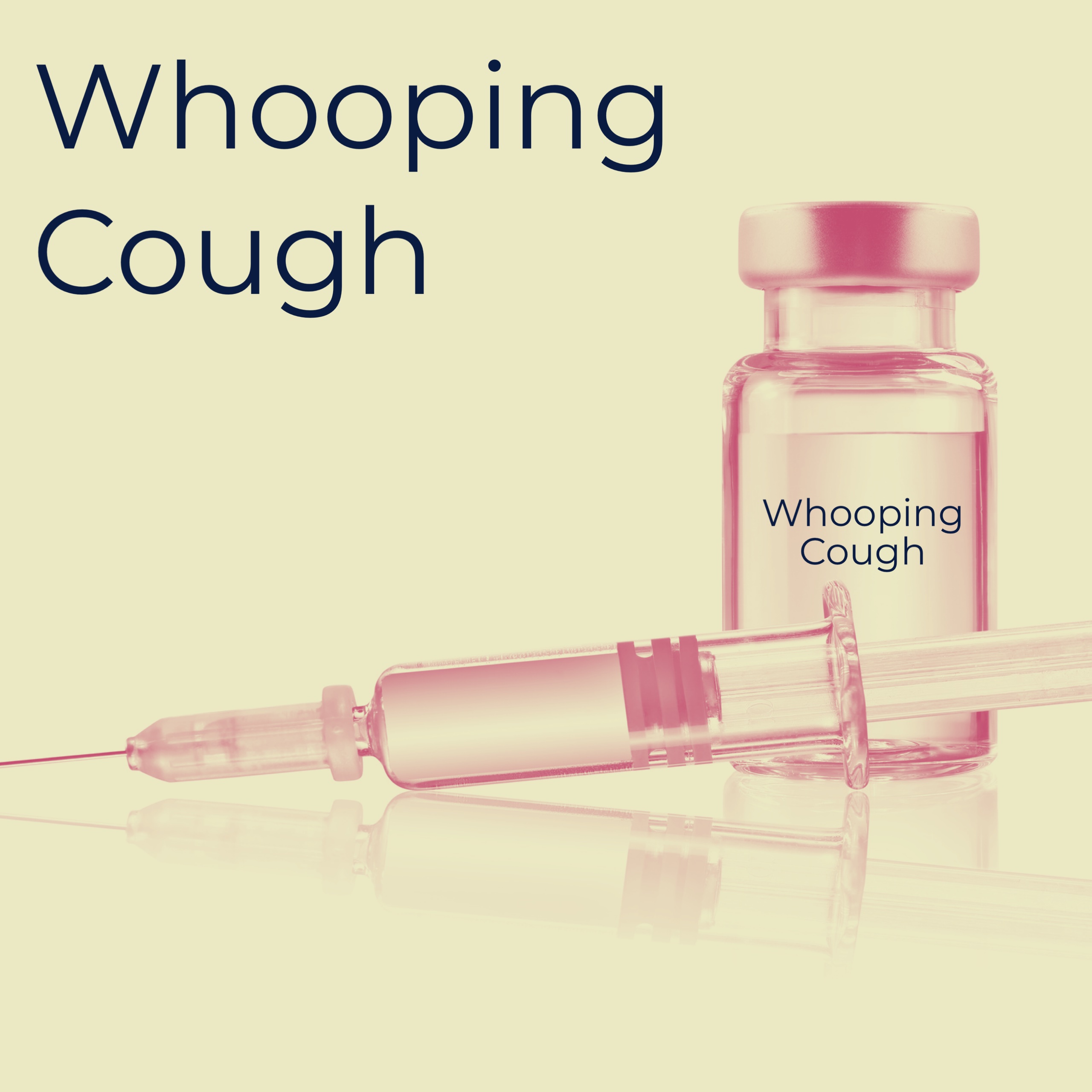Forgot password? Reset here
Whooping Cough
Whooping cough is a highly contagious, bacterial disease usually found in children. It starts with cold-like symptoms and then progresses into a cough that can last for 10 weeks or more. While this is very unpleasant, side effects are much more severe in babies under 1 years and can cause serious health complications. It is therefore recommended that pregnant women (and sometimes their close family members) and those who may come into contact with young babies should be vaccinated, so that they can pass protective antibodies to the newborn baby..
Whooping cough is generally thought of as a childhood illness, but it is actually more common in adults. Whooping cough can be treated with a course of antibiotics to make the infection less serious, but prevention in the form of vaccination is always recommended.
The vaccine used to immunise against whooping cough is Repevax, which is a combined vaccine that also protects against diphtheria, tetanus, polio.
WHAT IS WHOOPING COUGH?
Whooping cough is a respiratory tract infection with Bordetella pertussis bacteria.
Whooping cough – also known as pertussis – is a very contagious infection only found in humans. Whooping cough causes a distinct, violent cough which is dry, persistent and uncontrollable. It can make it difficult to breathe normally which can lead to serious health complications especially in infants and young children. It can be very painful and children often make a “whoop” sound when taking breath between coughing; hence the name.
HOW IS WHOOPING COUGH SPREAD?
Whooping cough spreads easily from person to person via droplets.
This can be via coughing, sneezing, talking, or when spending a lot of time near one another where you share a breathing space. Due to the uncontrollable cough developed through the infection, it can spread very fast amongst people who have not been vaccinated.
WHAT ARE THE SYMPTOMS OF WHOOPING COUGH?
It produces cold-like symptoms, progressing to bouts of severe coughing with whooping and/or vomiting in between breaths.
The cough can persist for two to three months. It is most dangerous in children under 1 year of age who are also at risk of serious complications.
Complications include increased risk of dehydration, breathing problems, pneumonia and seizures. Whooping cough is less severe in older children and adults. Parents of newborns may ask unvaccinated family and friends to consider vaccination prior to seeing their child.
WHO SHOULD BE VACCINATED AGAINST WHOOPING COUGH?
Infants normally receive whooping cough vaccine as part of their childhood Immunisation program. We can vaccinate patients 10 years of age and over who meet the eligibility criteria.
If this gets missed for any reason, unvaccinated children or adults should be vaccinated at a later date.
Whooping cough vaccine should also be given to:
- Pregnant mothers – to help protect babies during their first few months, before they can be vaccinated themselves
- People who have not had a whooping cough containing vaccine for ten years or more and have been in close contact with somebody with whooping cough
- People travelling from the UK to Australia and the USA to live or work, or to visit households with newborn babies, may also need to be vaccinated
How long does a whooping cough vaccine last?
When given as a booster dose to adults, the dtap-IPV vaccination is considered to provide protection for 10 years.
For children, the primary vaccination schedule consists of a series of doses in infancy, with pre-school boosters.
In the UK, adults are not routinely offered booster doses other than between 16-32 weeks of pregnancy, though in other countries have different policies.
Do I need a whooping cough vaccine to be in close contact with a newborn baby?
Whooping cough is generally advised for pregnant women, rather than those who are in close contact with newborns.
However, particularly in countries where whooping cough is more prevalent, or where there is increased awareness of possible problems, vaccination is also advised for close contacts, caregivers and close family members who will be in contact with unimmunised infants.
We are often asked to vaccinate grandparents travelling to Australia or the United States to visit newborn grandchildren. Whilst this isn't a primary reason for vaccinating a patient as they will likely have already been immunised, we appreciate that it may be a stipulation of the country you are travelling to that you have evidence of vaccination. In such cases we will carry out a risk assessment and proceed with the vaccination if it is safe and appropriate for the patient.
How long before contact with a baby should I be vaccinated?
If you are having the whooping cough vaccine because you will be in close contact with a newborn baby, it is best to try and be vaccinated at least two weeks in advance.
The vaccine costs £80 for a dose. Please call the pharmacy to discuss further if you need to be vaccinated.

